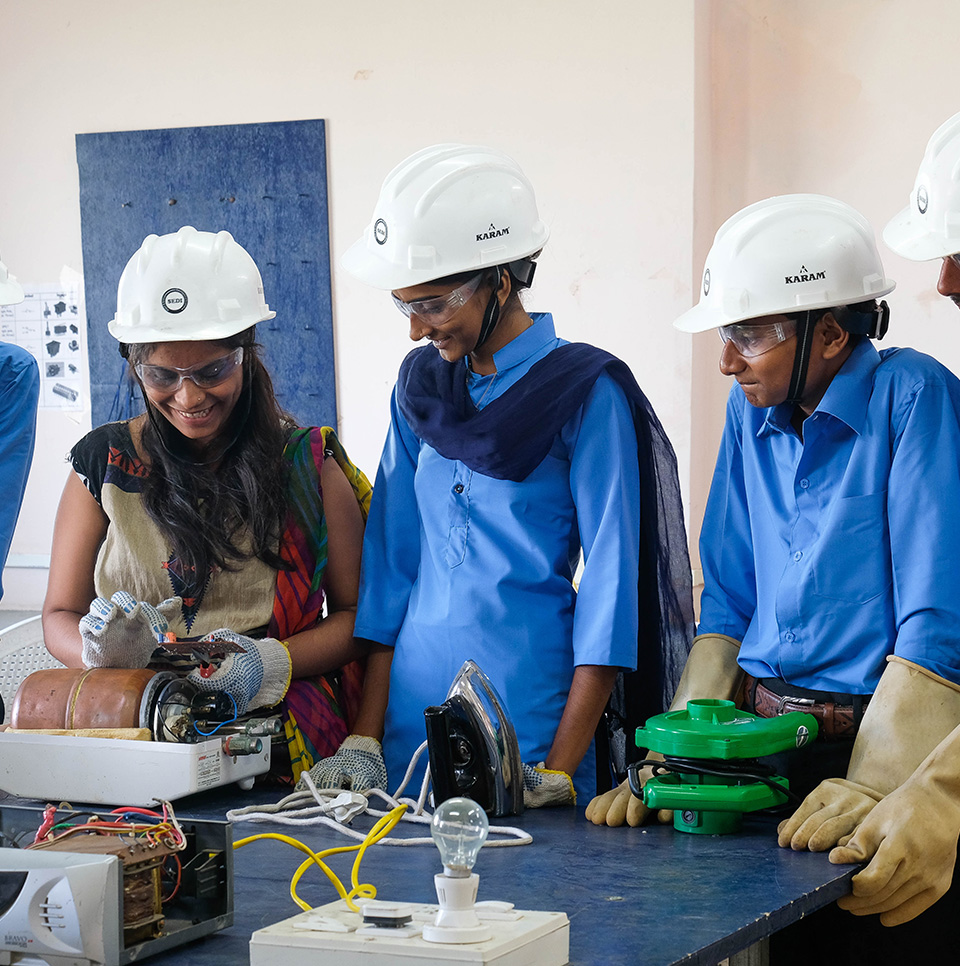


We embrace a stakeholder-centric approach that thrives on collaboration, trust, and long-term value creation. Our unwavering commitment to integrity and transparency underpins meaningful relationships with those we serve and partner with. We ensure that our business goals reflect the evolving needs of society, the environment, and our stakeholders, powering inclusive and enduring growth.
Categories of key stakeholders identified
at regular intervals
Essential Indicators
The successful involvement
of our
stakeholders is
essential to the achievement of our strategic goals
because it provides us with the opportunity to understand
their expectations, respond to their concerns, and assist
us in prioritising the areas in which we should be
concentrating our efforts. Our mechanism for engaging with
stakeholders is governed by our Stakeholder Engagement
Policy
(https://www.sanghicement.com/wp-content/uploads/Stakeholder-Engagement-Policy.pdf.)
which is
further aligned with global best
practises.
SIL identifies its stakeholders as groups and individuals, who
can influence
or/are
impacted by our operations/ activities,
change in technology, regulations, market and societal trends either directly or
indirectly.
Stakeholders comprise of
communities, employees, supply chain partners, customers, investors, regulators,
industrial
organisations etc.
Against each group, the potential ways in which
stakeholders will be
affected as well as the magnitude of both the
actual and perceived impacts have been determined. This assists the company in
developing a bespoke
plan for
engaging with stakeholders, which can then be kept up to date as and when is
necessary.
Throughout the course of the year, we maintain ongoing dialogue with the
stakeholders by utilising a
variety of
channels of contact. The insights that we gain from these projects are tremendously
helpful, because
they allow us
to continually enhance both our strategy and our operations. The process of engaging
stakeholders
also includes
regular feedback and grievance redressal methods, both of which are vital components
of the process.
| Stakeholder Group | Whether identified as Vulnerable & Marginalised Group (Yes/No) | Channels of communication (E-mail, SMS, Newspaper, Pamphlets, Advertisement, Community Meetings, Notice Board, Website, Other) | Frequency of engagement (Annually/ Half yearly/ Quarterly/ others – please specify) | Purpose and scope of engagement including key topics and concerns raised during such engagement |
|---|---|---|---|---|
| Shareholders and Investors | No |
- Investor relations arm – Annual Report – Public disclosures – Investor meetings/calls |
– Quarterly/ annually as and when requested – One-on-one investor interaction as and when requested" |
– To strengthen business conduct and communication – Growth and profitability of ESG oriented business. |
| Government & Regulatory Authorities | No |
– Annual Report – Plant visits – Regulatory Compliance reports |
- Continuous interactions |
– Climate change related rules/regulations – Communications on existing & proposed legislations |
| Employees | No |
– Training and seminars – Meetings and reviews – HR programmes – Employee satisfaction surveys – Departmental meetings – Townhall meetings – Internal newsletters and magazine |
- Continuous interactions |
– Work-life balance – Transparent appraisal and promotion policy – Awareness on internal policies – Fair remuneration structure |
| Suppliers | Yes |
– Supplier meets – Periodic assessments and interactions |
- Continuous interactions |
– Adherence to the supplier code of conduct – Strengthen business relationships – Create awareness for sustainable supply chain |
| Community | Yes |
– Project-based stakeholder meets – CSR arm – Community Advisory Pane |
- Continuous interactions | – Positive engagements for sustainable mining, water conservation, land reclamation, and other initiatives of CSR |
| Media | No |
– Media briefings – Press releases – Marketing communication |
– Need based | – Increase transparency and clarity in shared information |
| Industry Asssociation | No |
– Meetings/Conferences – Policy papers |
- Need based | – Knowledge enhancement for policy interventions and policy advocacy on sustainable development practices in value chain |




